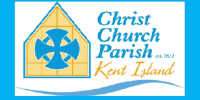 The Episcopal Church is a denomination (or, community) within the Christian faith (just as Baptists, Lutherans, Methodists.) We are following Jesus into loving, liberating and life-giving relationship with God, with each other and with the earth, seeking every day to love God with our whole heart, mind and soul, and to love our neighbors as ourselves (Matthew 22:36-40). Just like Jesus.
The Episcopal Church is a denomination (or, community) within the Christian faith (just as Baptists, Lutherans, Methodists.) We are following Jesus into loving, liberating and life-giving relationship with God, with each other and with the earth, seeking every day to love God with our whole heart, mind and soul, and to love our neighbors as ourselves (Matthew 22:36-40). Just like Jesus.
The Episcopal Church, established shortly after the American Revolution, has its roots in the Anglican Church. In colonial America, the Anglican Church, known as the Church of England, had a strong following. But when the colonies won their independence, the majority of America’s Anglican clergy refused to swear allegiance to the British monarch as was required. As a result, the Episcopal Church was formed. Today, it is part of the worldwide Anglican Communion, and traces its heritage to the beginnings of Christianity.
We celebrate our unity in Christ while honoring our differences. Our threefold sources of authority are Scripture, Tradition, and Reason.
- The Bible: We believe that the Bible is the inspired Word of God and contains all things necessary for life with Jesus and to guide us in living holy lives. While the Bible is our sacred text, we acknowledge that it is an ancient human document, full of all the contradictions and inconsistencies of humanity. We seek in Scripture spiritual inspiration, historical grounding for our faith, the teachings of Jesus and of the Hebrew prophets before him, and guidance for our own life of prayer and service. We expect that people will interpret scripture using their minds, their hearts, and following the teachings (traditions) of the church … and that they will not be afraid to struggle with some of the difficult and contradictory texts in the Bible as they make moral and ethical decisions.
- Tradition: We are part of the ancient lineage of Christianity and members of the worldwide Anglican Communion. Our principal celebration, the Eucharist, is modeled on Jesus’ Last Supper with his disciples and the communal meals of the earliest Christian communities. In our governance, we recognize both the ministry of bishops, who serve in the line of apostles, but we also believe in “the priesthood of all believers,” the teaching that divine wisdom and inspiration are equally accessible to every Christian.
- Reason: We do not believe the Spirit stopped speaking when the last page of the Bible was recorded. We believe that God granted us the gift of reason to see the influence of the Holy Spirit through our own experiences, the experiences of our community and the experiences of Christians down through time. We also believe the natural sciences play a role in making clear the divine design. Our church has reasoned its way to several decisions that were controversial when first made, but some of which have become less so over time. We believe that issues such as whether to use birth control are matters best left to the informed individual conscience. We know that there is grace after divorce and we do not deny the sacraments to those who have been divorced and remarried. We ordain women as deacons and priests. We believe that same-sex relationships can show forth God’s love as truly as relationships between a man and a woman. We believe that all people, regardless of their sexual orientation or gender identity or expression are made in the image and likeness of God.
Perhaps the best short, comprehensive summary of the Episcopal faith is contained in the Baptismal Covenant in which Episcopalians profess their belief in the Holy Trinity and their willingness to follow the church’s teachings and repent of their sins. We also pledge to “seek and serve Christ in all persons,” and to “strive for justice and peace among all people, and respect the dignity of every human being.”
Adapted from The Episcopal Diocese of Washington
